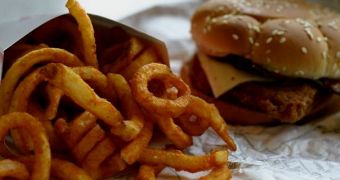According to a new scientific study, it would appear that fast food and the cultural effects it produces may be linked to some extent with people growing more and more impatient as the years pass. Since this industry first appeared, as a means of saving time and allowing people to go on about their usual business faster, it has slowly developed into a multi-billion dollar business deal that has long since lost its connection with saving time. Now, when people become impatient upon waiting 30 extra seconds for something, such as for example the traffic light actually turning green, this may have something to do with the way they got used to letting things happen when they eat out, LiveScience reports.
According to the team behind the investigation, fast food not only changed the way we approach eating and spending evenings at home with our families, but also what we eat. “Fast food represents a culture of time efficiency and instant gratification. The problem is that the goal of saving time gets activated upon exposure to fast food regardless of whether time is a relevant factor in the context,” says University of Toronto Rotman School of Management expert Chen-Bo Zhong, who was also a researcher on the new investigation.
“Walking faster is time efficient when one is trying to make a meeting, but it's a sign of impatience when one is going for a stroll in the park,” the expert adds. He says that the UT research group believes that the main social influence fast food has on our lives is promoting a general sense of haste, which would be nothing bad if people knew not to apply it all the time, regardless of the context or situation they are in at a particular moment. The idea was accurately tested in a series of lab experiments that the Canadian science team devised.
They placed volunteers in front of computer screens, and then asked them to perform a reading task. Before the text was displayed, some of the computers flashed renowned fast food symbols, such as for example the Golden Arches which define McDonald's. The volunteers who unconsciously perceived the symbols – which appeared too fast for the conscious mind to pick them up – tended to hurry and read the text faster than those who did not see the symbols. They did that regardless of the fact that they were promised no incentives for finishing ahead of the other participants.
“Fast food is one of many technologies that allow us to save time. But the ironic thing is that by constantly reminding us of time efficiency, these technologies can lead us to feel much more impatience,” says Sanford DeVoe, also from UT, who was a researcher on the investigation. Details of the work appear in an upcoming issue of the respected scientific journal Psychological Science.

 14 DAY TRIAL //
14 DAY TRIAL //